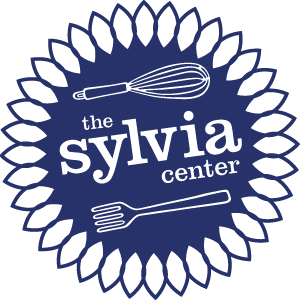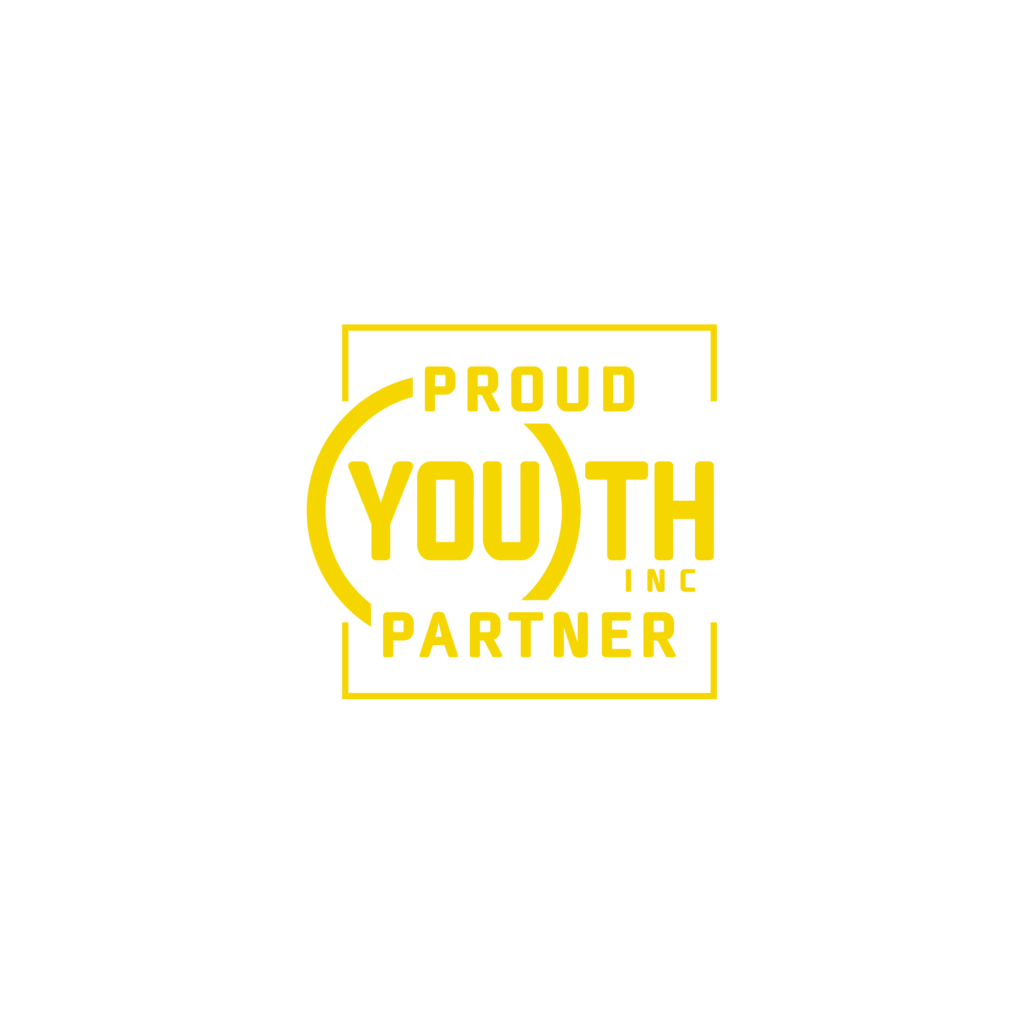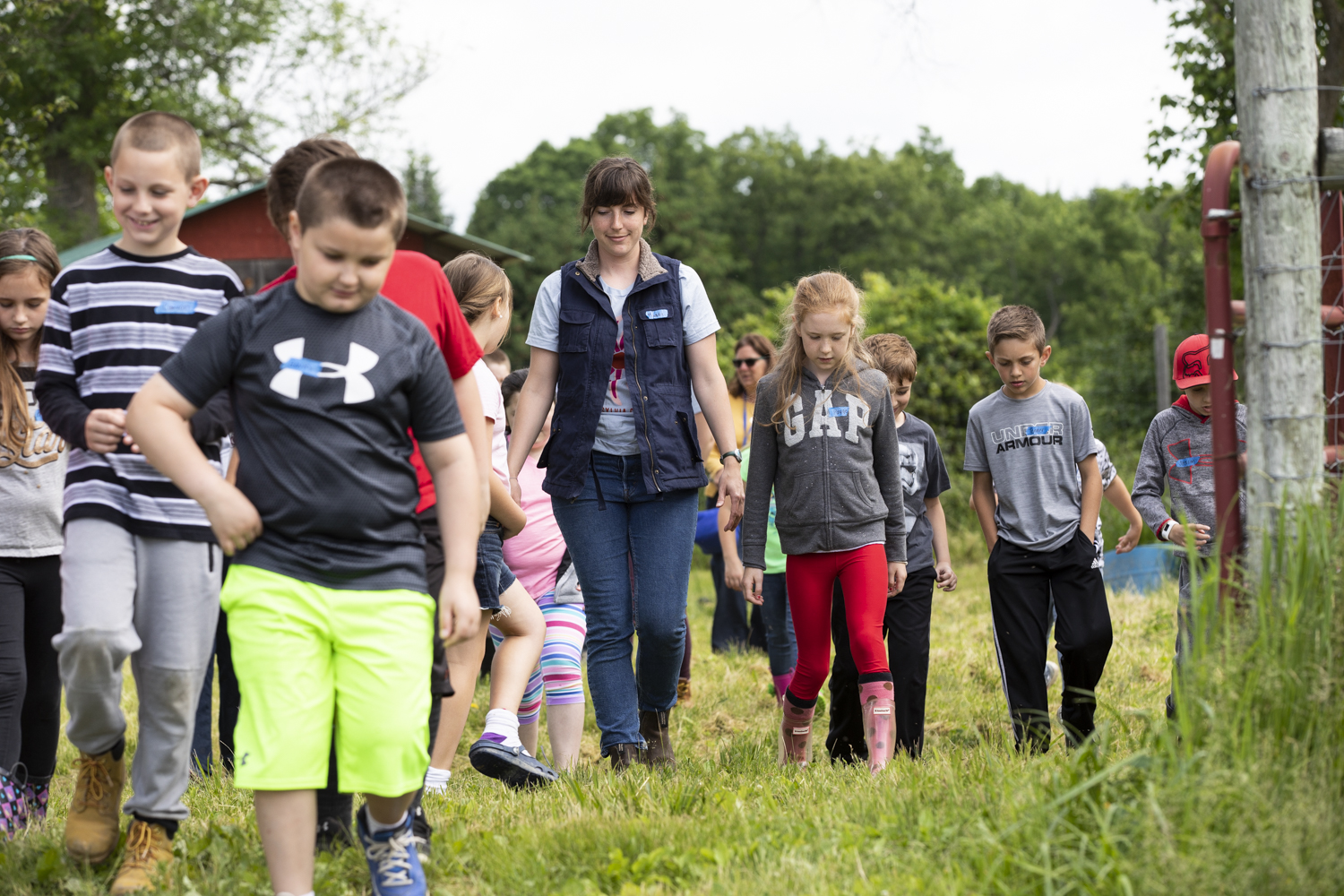
After working at The Sylvia Center’s Learning Garden at Katchkie Farm, Madeleine Fischer moved to Denver during the COVID pandemic and began teaching classes virtually while pursuing a Masters in Urban and Regional Planning. Though she misses cooking with students in person, she says she still gets to see those moments of discovery when working with them online. We talked about her relationship to gardening over the years and how it led her to cooking.
By Kate Ray
Maddie: I taught on [Katchkie] farm and in all of the five cities in Columbia County. It’s a working farm, so kids get to see how food grows on a big scale and see greenhouses and tractors. They work in the garden and then bring what they harvest down to the outdoor kitchen. They get to see the whole story of food, from seed to plate. It’s a magical place. I love being outside with my hands in the dirt. That universal moment that kids have when they see something come out of the ground or realize, like, That’s how broccoli grows!. That’s what it’s all about for me.
In college I studied community and environmental sociology and that’s what taught me to think about the connection between people and food. That led me to an internship with a garden for an urban farm in Madison, Wisconsin. That organization was focused more on gardening and less on cooking. I came around to this idea that it doesn’t mean much if you have the food but you don’t know how to cook with it. I love food and I love eating but I wasn’t much of a cook. The Sylvia Center taught me how to not be stuck to a recipe and how to cook for my own tastes.
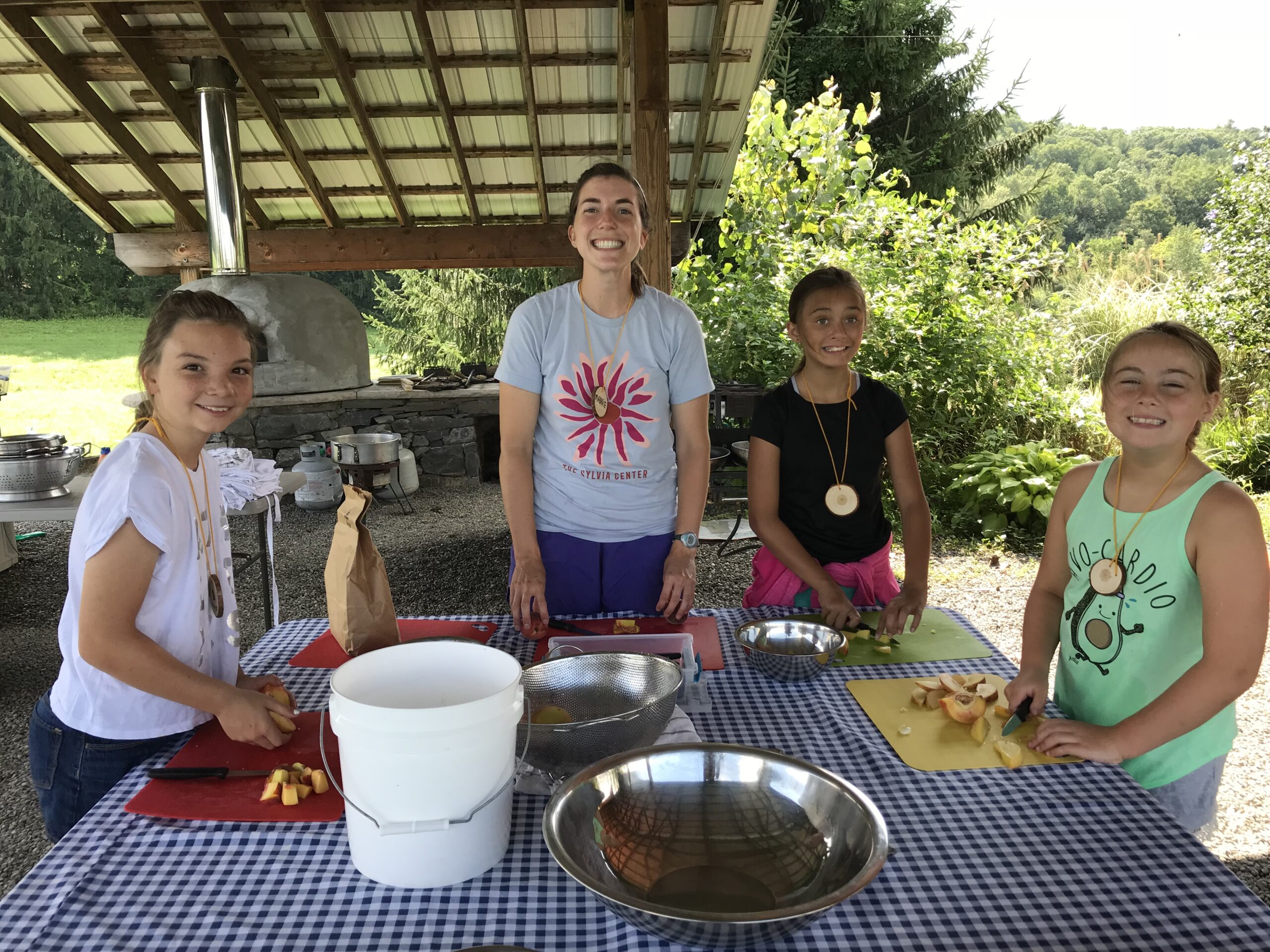 |
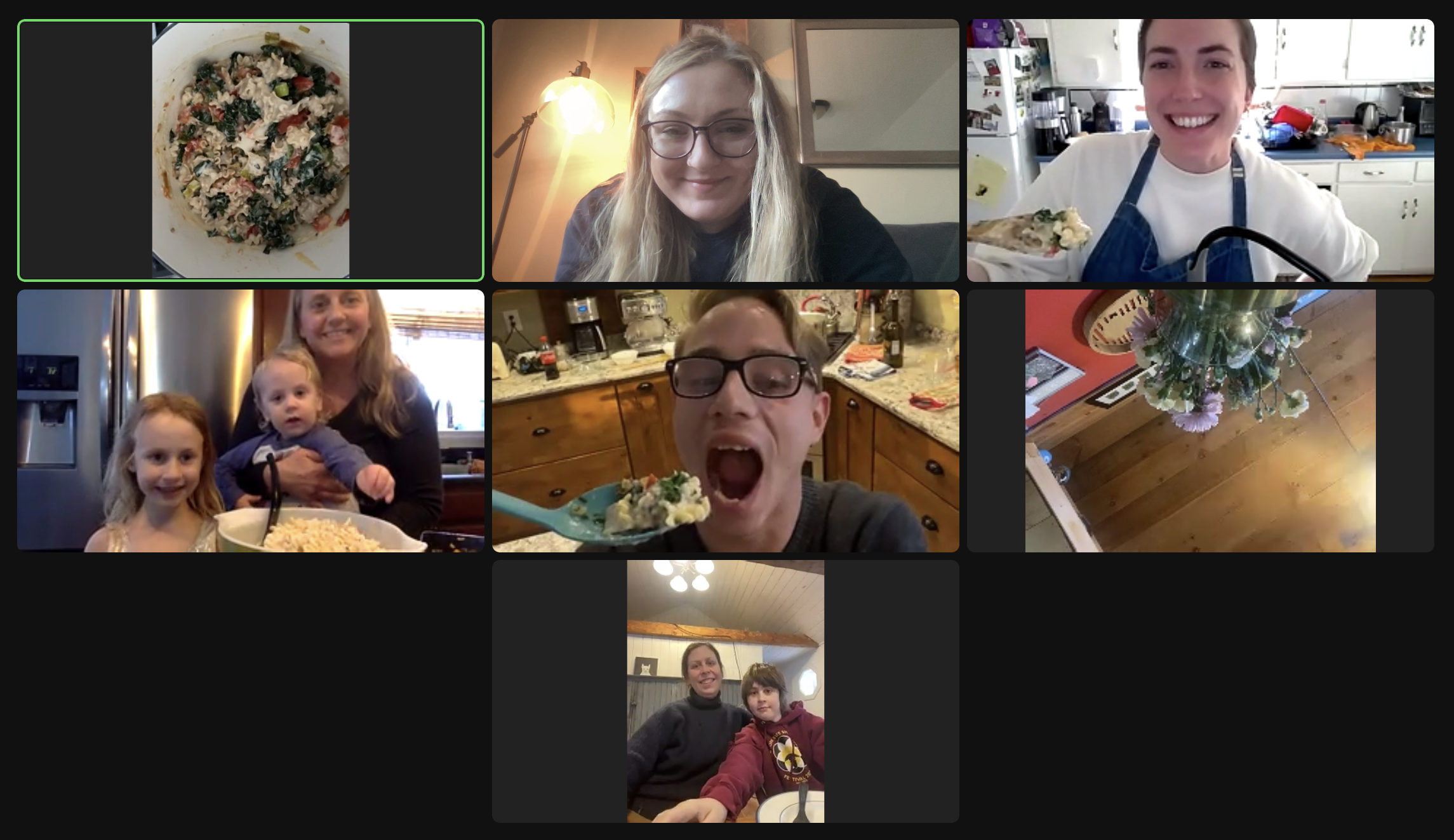 |
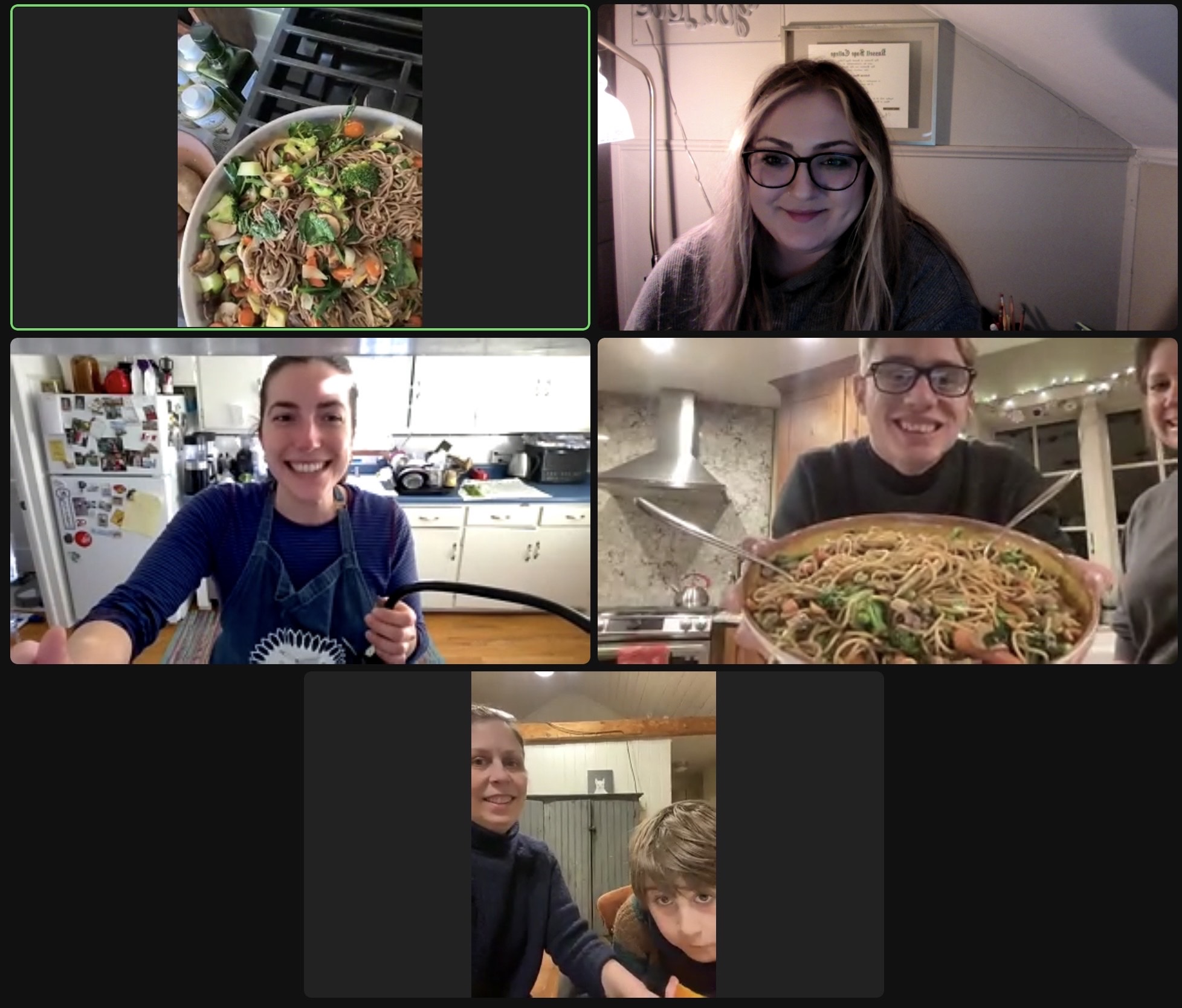 |
Kate: How did you start getting more into cooking?
Maddie: At first it was the skills. Having the opportunity to practice chopping an onion every day. That’s what first got me more comfortable experimenting. We would cook for each other at The Sylvia Center and have each other over for dinners so I saw how other people cooked for themselves at home. I think one of the first things I made that I really liked was a butternut squash chili. I love chili because you can be creative with the toppings — even for a group that has different taste buds, you can put your own combination of things that you like on it. I love cheese, lime and cilantro — so much cilantro, like half cilantro. I realized you can just stir in some greens and that’s delicious, they just wilt in.
My parents cooked a lot, but I wasn’t too involved. I always appreciated how much they put into cooking and I saw how much joy it brought them. I think that was passed down to me and part of why I love it so much now.
I grew up in the suburbs of Milwaukee and Wisconsin. We didn’t have a traditional garden with the rows and the beds, it was just kind of haphazard around the house. We had a rhubarb patch, a raspberry patch, some herbs and sometimes my dad would grow tomatoes. We didn’t call it a garden, but those little patches of land really taught me that: This is food that grows in the ground.
Rhubarb is sacred in my family’s house. We didn’t eat it often— only once a year, when my mom would make strawberry rhubarb pie. But we were crazy about it. I have lots of good memories of eating raspberries on summer mornings. I liked to go out to the herb garden. I always loved the smells. To take a leaf between your fingers, and the aroma and the texture is just so fun to experience.
Now I’m studying urban and regional planning with a food systems lens. The Sylvia Center work taught me so much about ground level programming and community needs and food access issues, and that led me to urban planning to be able to think about these things at a systems level. In both urban and rural settings, transportation is something that gets overlooked. I experienced that with my work at The Sylvia Center, because it was so much work coordinating the buses for the kids to get to the farm. And you would think that would be better in cities, but in Denver, public transit is not what it should be. So people have a really hard time getting food if there aren’t grocery stores in their neighborhood.
Where my heart is now is in recognizing how powerful and important urban agriculture is. I used to think that urban agriculture was only like rooftop gardening, which it can be, but it also could just be having a tiny community garden. But there’s a lot of barriers to that too, and getting all the resources that are needed to make it function are still a challenge. I hope that more people can farm for a living in urban areas. My dream food system is to bring it back from rural areas and support farmers to be closer to all the other resources that a city provides. There are some really great programs to support farmers here — to have a two or three acre farm on their property, and then a farm stand also on their property where they can sell their produce, which is so much more convenient for the farmer than having to find a wholesaler or go to a farmers market every week.
Kate: Do you have a garden yourself now?
Maddie: We have two 4×8 foot beds and peas are growing right now. And my dad brought a rhubarb plant from Wisconsin, and we planted that here and it’s thriving. I’ve gotten really interested in soil health. My past jobs taught me about how to prepare a bed in the spring and put in compost and measure the pH and figure out what nutrients it needs. So, so far this season is about trying to build healthy soil. I’m excited to see how that has an impact on what comes up and how the plants do.
Kate: Is there anything you’re excited about cooking this summer?
Maddie: I always love to make a seasonal galette so I’m looking forward to doing that with tomatoes. I add pesto, basil and cheese, usually some greens too. But the one I need to make right now is a spring galette, with asparagus and spinach and maybe ricotta.
I don’t know if I could do the rhubarb pie without my mom. That’s just one of those things, you know. Cake is more my thing. Rhubarb cake with ginger is a really good combo.

